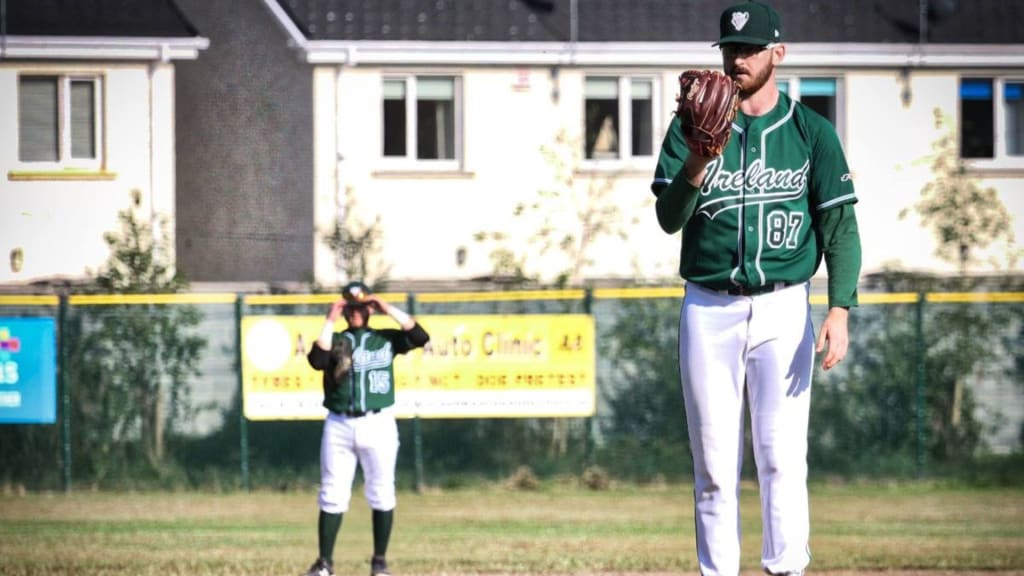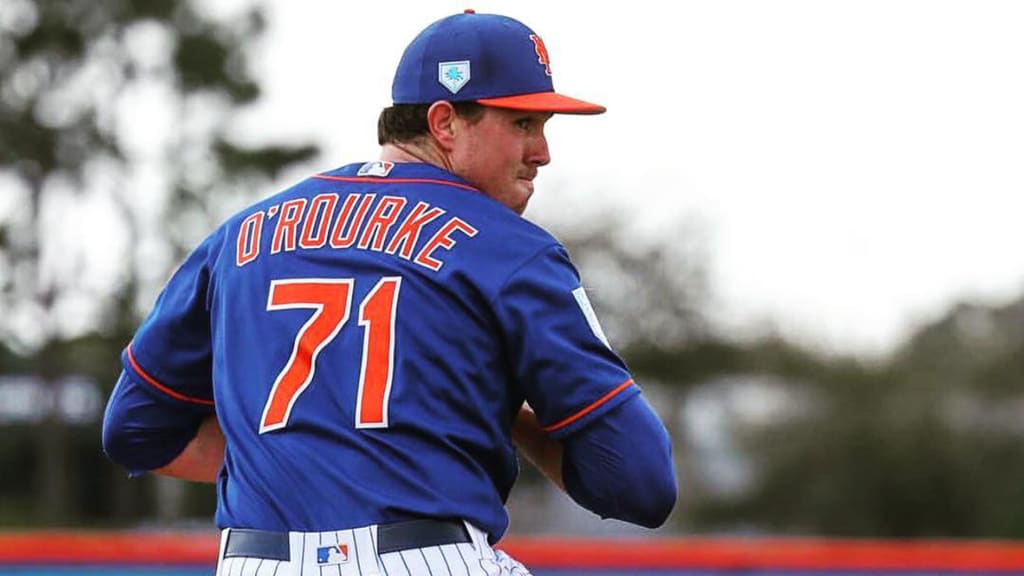
PORT ST. LUCIE, Fla. -- By late spring 2018, Keelan Smithers was out of baseball, running short on possibilities and considering abandoning his dream for good. A stalwart pitcher at Princeton University, Smithers underwent surgery to correct thoracic outlet syndrome shortly after his 2017 graduation. That June, he went undrafted. The following spring, the independent Gateway Grizzlies cut him.
With his options dwindling, Smithers reached out to Chris St. Amand, an Irish baseball booster soon to become general manager of that country's national team. Smithers agreed to fly to Ireland where, in St. Amand's words, he "got his mojo back." Pitching in front of more than 1,000 fans at a tournament in Ashbourne, Smithers gave up just one hit over seven innings to upset the heavily favored Greeks. He returned three days later to deliver two more scoreless innings in relief.
By year's end, Smithers found that his popularity back home had increased. The Reds offered him a tryout. The Mets offered him a tryout. Smithers signed a Minor League deal with the latter, his dream rekindled.
Ireland pushed forward without its newest star. A few months later, St. Amand met another pitcher, Ryan O'Rourke, in a Boston coffee shop, presenting him with an emerald-green national team jersey. O'Rourke also attempted to pitch for Ireland last summer, but unlike Smithers, couldn't make it work -- but may do it yet.
Through baseball's winding, global paths, these two American-born players have brought a piece of Ireland's baseball mission to Port St. Lucie. O'Rourke, a Twins reliever in 2015-16, is one of six pitchers still in contention for the Mets' final bullpen spot. Across the way in Minor League camp, Smithers is trying to make a professional regular-season roster for the first time. Also present is Northern Ireland's P.J. Conlon, who last year became the first Irish-born player to appear in the Majors since World War II.
"A lot of guys in Ireland are Mets fans now," Smithers said.

Consider any interest at all unusual in a country more traditionally keen on soccer, rugby, Gaelic football and hurling. This summer will mark the first time the national baseball team, which has existed since 1996, will play above the lowest rung of European competition. Thanks in large part to Smithers, Ireland breezed past Greece and three other countries last July, qualifying for a higher-level tournament against stiffer competition this summer. If the Irish keep winning, their wave could crest at the 2020 Tokyo Olympics.
For now, that remains a pipe dream -- albeit one Ireland is actively pursuing. Through word of mouth, social media, a New York-based nonprofit called Baseball United and other means, the team is engaged in a mission to raise funds and recruit foreign-born, Irish-heritage players like O'Rourke and Smithers, while also growing the game locally at the grassroots level.
"Our diaspora is a competitive advantage for us and it's not something we shy away from," St. Amand said. "These guys, they're Irish. And they connect with it. And they feel really strongly about the flag and about the uniform and they really want to represent the country. There's a lot of pride. There were a lot of tears flowing last year, everyone singing the national anthem. These guys get it. ... In terms of their ancestry, they're coming home."
For Smithers, the hook was natural. The son of an Irish-born mother, Smithers became an Irish citizen at birth. He traveled to Ireland from Massachusetts often in his youth and, once he decided to play for the national team, needed only to acquire a passport to gain his eligibility. Unlike the World Baseball Classic, which uses looser ancestral requirements, European international rules require all players to be citizens of their respective countries.
That is what drove O'Rourke, another Massachusetts native with Irish-born grandparents, to pursue dual citizenship this winter. Rehabbing from Tommy John surgery in 2018, O'Rourke struck a deal with the Orioles that would let him compete in Europe, so long as he wasn't on Baltimore's Major League roster at the time. But the logistics of establishing citizenship -- he had to track down his parents' and grandparents' original birth and marriage certificates, as well as his own original birth certificate, proof of residency and more -- proved cumbersome enough to prevent him from completing it all until after last year's tournament.
Now, that mission is on hold; O'Rourke is in the Mets' camp pursuing a Major League dream that remains his top priority. Smithers, too. But if circumstances allow either player to return to the Irish club -- whether for Olympic qualifiers this September, or some other cause a decade down the road -- they are both, in Smithers' words, "fully invested."
"The fact that we don't have Ryan or don't have Keelan is only a good thing, because that means that they're pitching professionally and pursuing their dreams," St. Amand said. "We 100 percent support that. Of course it makes it difficult for us, but that's a good problem to have."
Merely having those two pitchers affiliated with Ireland helps spread awareness of baseball overseas, where St. Amand and other team officials hope to generate interest from the youth levels on up. O'Rourke intends to travel to Ireland this offseason to coach at a baseball clinic. Even the success last year of Conlon, a Belfast-born pitcher who has played for Great Britain in international competition, has only increased the game's footprint in Ireland. For all three players, a passion for baseball is mingling with a respect for their heritage.
"I'm so proud of being from Ireland," O'Rourke said. "When he gave me the jersey that said 'Ireland' on the front and 'O'Rourke' on the back, as much as it means to me, I know it means a lot to my dad and my grandparents. To bring a piece of what this game's brought me back over there, and have success and grow the game in Ireland, would be really cool."


